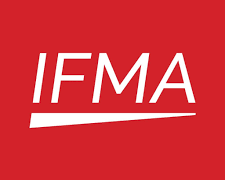The global poultry industry will likely be challenged by its biggest trade shake-up in decades this year, driven by a number of factors that might come together in a powerful way, according to RaboResearch’s latest global poultry report: Poultry Quarterly Q2 2018: A Massive Global Poultry Trade Shake-Up.
The international poultry outlook has so far been quite good for most regions, with reasonable price levels and margins, as well as fewer avian influenza (AI) outbreaks compared to last year. However, market participants are focused on the potential for a big shake-up in global poultry trade in 2018 – the biggest in many years.
“In the coming months, the global poultry market is set to go through turbulent times. This is especially due to ongoing restrictions because of AI, the weak-flesh investigation in Brazil, and recent temporary restrictions on exports to the EU for one of Brazil’s leading exporters, as well as the pending ban on stunning for exported products into Saudi Arabia,” said Nan-Dirk Mulder, senior animal protein analyst for Utrecht, Netherlands-headquartered Rabobank.
Other potential obstacles include the anti-dumping investigation into Brazilian imports by Chinese authorities, and NAFTA renegotiations, which could potentially shake up North American poultry trade later this year.
Brazil Will be Most Affected
Many of these factors have the potential to shake up global trade streams and heavily affect prices later this year, affecting Brazil’s trade position. Saudi Arabia is Brazil’s No. 1 export market, and limited alternatives exist for whole-bird exports. The EU is Brazil’s top export market for breast meat and also here limited alternatives exist, as most import markets prefer dark meat. Countries including Ukraine, Russia, and Poland stand to gain if Brazil loses market share, but will not be able to fully replace Brazil’s position in these markets.
Prices for Globally Traded Poultry
EU trade restrictions are impacting breast meat prices, the Saudi standard is changing the whole-bird market, and the China/Brazil dispute and NAFTA renegotiations could potentially impact the dark meat market. Local producers and exporters who sell in the EU and Saudi Arabia will face rising prices, while whole bird and breast meat prices on global markets will decline significantly.
Avian Influenza Still Plays Role
AI pressure is still significant, but the number of cases is lower than in the 2016/17 northern hemisphere winter season. China has shown the most remarkable recovery, with one of the most profitable winter seasons in years for the industry. This is thanks to AI vaccination, which has helped to significantly reduce the number of cases in China.
Regional Industries Faring Well
South Africa (despite the big listeria crisis) and Mexico in particular are still performing well, as are countries like Indonesia, India and Japan. The EU is also doing relatively well and breast meat prices will rise due to Brazil restrictions. Russia and Thailand are suffering from oversupply after industry expansion, and they will be looking to capture some of Brazil’s lost market share in global trade.





